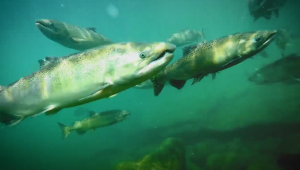The Northern California Water Association (NCWA) and Sacramento River Basin water resources managers are fully committed to successfully advance voluntary agreements to implement water quality objectives in the State Water Board’s Water Quality Control Plan for the Bay-Delta (Bay-Delta Plan).


A framework for voluntary agreements that includes agreements for the four major rivers in the Sacramento Valley was presented to the State Water Board on December 12, 2018 by the directors of the California Department of Fish and Wildlife and the Department of Water Resources. The voluntary agreements are consistent with the recent letter from Governors Brown and Newsom which stated that “Voluntary agreements are preferable to a lengthy administrative process and the inevitable ensuing lawsuits.”
Under the framework for voluntary agreements, parties are diligently working to meet a series of near-term planning objectives, including a March 1, 2019 objective for submission of a project description for the Bay-Delta Plan.
NCWA agrees with the Governors that “the need to improve our aquatic ecosystems is urgent” and “a lasting and well-thought-out solution [i.e., voluntary agreements] will benefit all Californians and our environment.” NCWA and the leadership in Northern California strongly believe that voluntary agreements are the best opportunity California has to improve conditions for fish and wildlife in the Bay-Delta watershed and we look forward to working with the new state administration to implement the voluntary agreements as a way to “fix” the Bay-Delta watershed rather than “fight” for the next several decades.
“These comprehensive agreements include a portfolio of instream flows as well as habitat restoration measures that will benefit multiple fish and wildlife values for each river, including unprecedented efforts to reactivate the floodplain. Voluntary agreements provide a more collaborative, effective and efficient alternative to the traditional adversarial State Water Board hearing process.”
For the full NCWA statement, click here.



